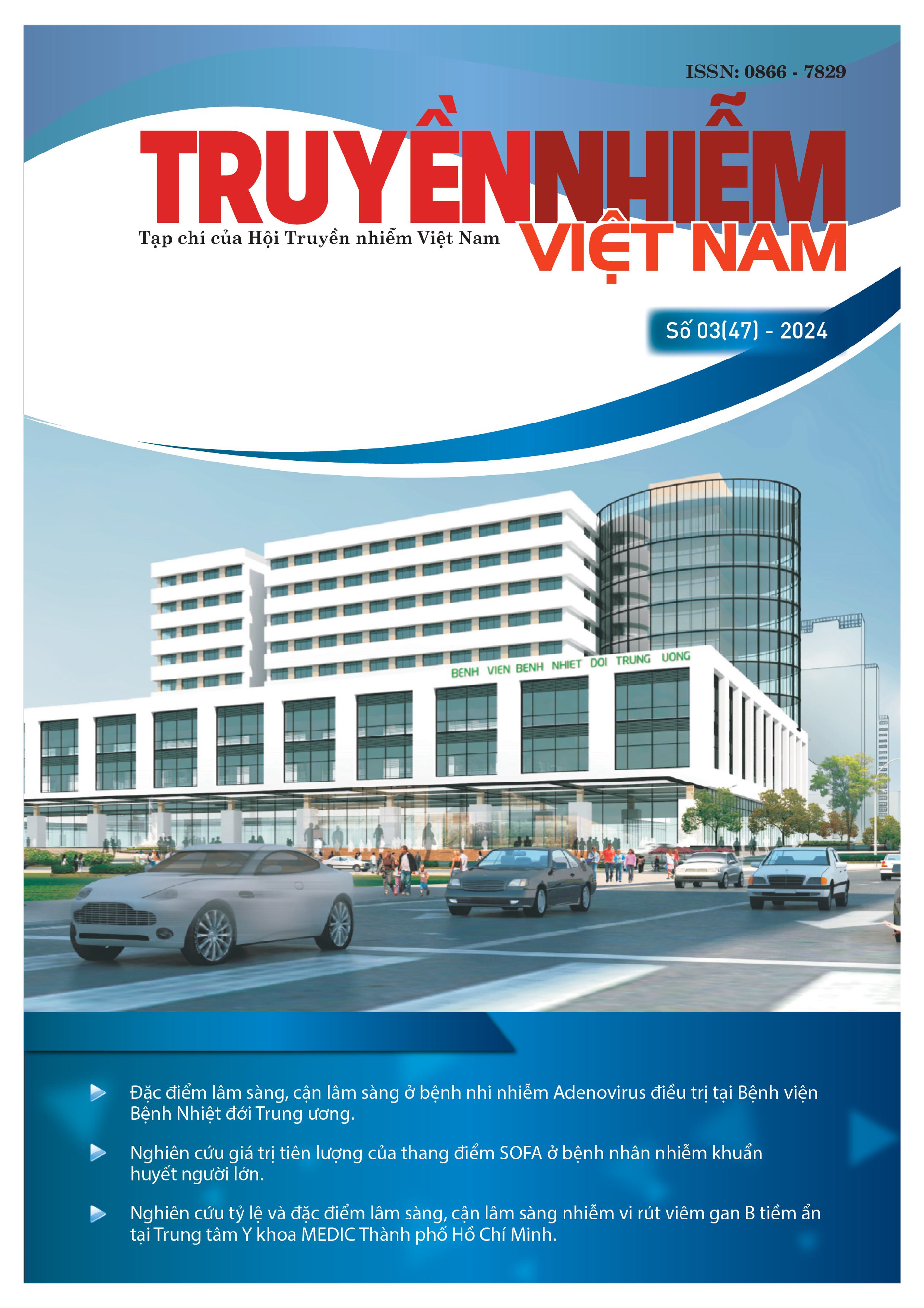STUDYING THE RELATIONSHIP BETWEEN GENETIC GENES ICEA, CAGA, VACA OF HELICOBACTER PYLORI AND PATHOLOGY IN PATIENTS WITH GASTRIC CANCER
Main Article Content
Abstract
Background: Gene cagA and vacA are particularly noticeable in gastric cancer. There have been few studies on the analysis of iceA gene expression related to H. pylori cagA and vacA genes in gastric cancer
patients.
Objectives: To investigate the relationship between H. pylori iceA, cagA, vacA genotypes and histopathology in gastric cancer patients.
Patients and methods: The objective of this study was to investigate the expression of H. pylori with the iceA, cagA, vacA positive have relationship with histopathology of gastric cancer.
Results: The gastric cancer patients with poor differentiated image accounted for the highest proportion in both cagA and vacA positive groups at 55.4% and 54.5%. There was no difference in the iceA1 and iceA2 genotypes between tubular and ring cells in gastric cancer patients with p > 0.05. It is not possible that the secretory contains H. pylori that carries the iceA gene. The iceA1 genotype accounts for 54% in the poorly differentiated group, and 32% in the medium differentiated group. The iceA2 genotype accounts for 50% in the poorly differentiated group and 40% in the medium differentiated group. The difference between genotypes A1 and A2 in patients with gastric cancer in the moderately and poorly differentiated group was
statistically significant with p < 0.05.
Conclusions: There is no association between cagA, vacA types; genotypes with histopathological features of gastric cancer according to WHO 2010. The difference between iceA1 and iceA2 genotypes in
gastric cancer patients in the moderate and poorly differentiated groups is statistically significant (p < 0.05).
Article Details
Keywords
cagA, vacA, iceA genotyps, Helicobacter pylori, gastric cancer
References
2. Peek, R.M. and Crabtree JE. (2006). Helicobacter infection and gastric neoplasia. J. Pathol. 208: p. 233-248.
3. Sahara S, S.M., Vilaichone RK. (2012) Role of Helicobacter pylori cagA EPIYA motif and vacA genotypes for the development of gastrointestinal diseases in Southeast Asian countries: A meta-analysis. BMC infectious Diseases. 12(223).
4. Van Doorn LJ. (1998). Clinical relevance of the cagA, vacA, and iceA status of Helicobacter pylori. Gastroenterology. 115(1): p. 58-66.
5. Yamaoka Y. (1999). Relationship between Helicobacter pylori iceA, cagA, and vacA Status and Clinical Outcome: Studies in Four Different Countries. J Clin Microbiol. 37(7): p. 2274-2279.
6. Trần Ngọc Ánh (2006) Liên quan giữa các týp của vi khuẩn Helicobacter Pylori với bệnh lý ung thư dạ dày tại Việt Nam. Y học lâm sàng, (4): 29-32.
7. Lê Quang Hưng, Hà Thị Minh Thi (2013). Nghiên cứu xác định kiểu gene cagA và vacA của Helicobacter pylori ở bệnh nhân ung thư dạ dày. Tạp chí Y Dược học - Trường Đại học Y Dược Huế. 14: p. 118-125.
8. Trần Đình Trí (2016). Nghiên cứu hình thái mô bệnh học và các yếu tố độc lực cagA, vacA của Helicobacter pylori ở bệnh nhân ung thư dạ dày. Tạp chí Y Dược học lâm sàng 108, 11(5), tr. 31-38.
9. Wei G.C., et al. (2012), Prevalence of Helicobacter pylori vacA, cagA and iceA genotypes and correlation with clinical outcome. Exp Ther Med. 4(6): p. 1039-1044.
10. El Khadir M., et al. (2017) vacA and cagA Status as Biomarker of Two Opposite End Outcomes of Helicobacter pylori Infection (Gastric Cancer and Duodenal Ulcer) in a Moroccan Population. PLoS One. 12(1): p. e0170616.
11. Ciftci I. H., et al. (2011) Investigation of Helicobacter pylori iceA1 and iceA2 genes in patients with chronic gastritis and gastric cancer. Mikrobiyol Bul. 45(2): p. 228-233.


